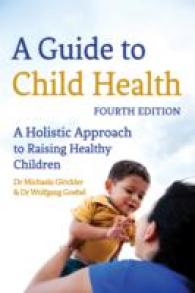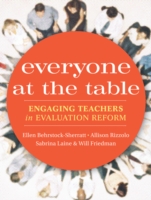- ホーム
- > 洋書
- > 英文書
- > History / World
Full Description
This book explores the affective dimension of Scottish Protestant public worship in early modern Scotland. It examines how the intensely emotional character of Scottish Puritan or godly piety was reflective of the emotional norms many Scots had to navigate in congregational worship following the Protestant Reformation. Using historiographical approaches developed within the history of emotions discipline, the book argues that in corporate rituals such as prayer, preaching, public repentance, fasting and the Lord's Supper, Scottish Protestants were expected to experience and express a variety of feelings that were associated with the cycle of conversion. These prescribed emotions were seen as integral to the efficacy of the liturgy, playing a vital role in the individual's, community's and nation's encounter with God. The book argues that these standards of emotion were informed by medieval, secular and protestant sources and new perspectives emerge on their profound impact upon the major political events that shaped seventeenth century Scotland.
Contents
Acknowledgements
Introduction: Scottish Protestant Worship and the History of Emotions
Chapter One: Defining the Passions and Affections
Chapter Two: Public Prayer as 'Talking with God'
Chapter Three: Preaching: The Instrument of Conversion
Chapter Four: Public Repentance as a Performance of Conversion
Chapter Five: Ecstasy in the Lord's Supper
Chapter Six: Emotional Directions in the Service Book and the National Covenant
Conclusion: The Centrality of Emotion in the rituals of the Kirk
Bibliography








